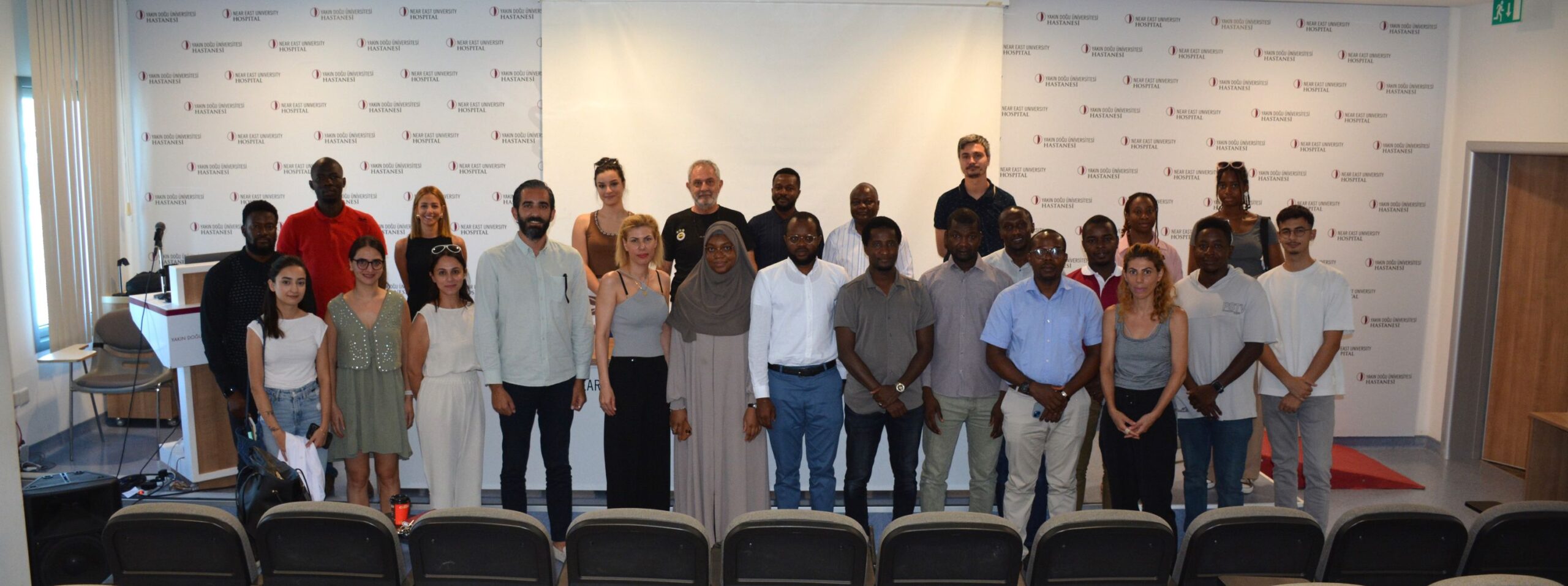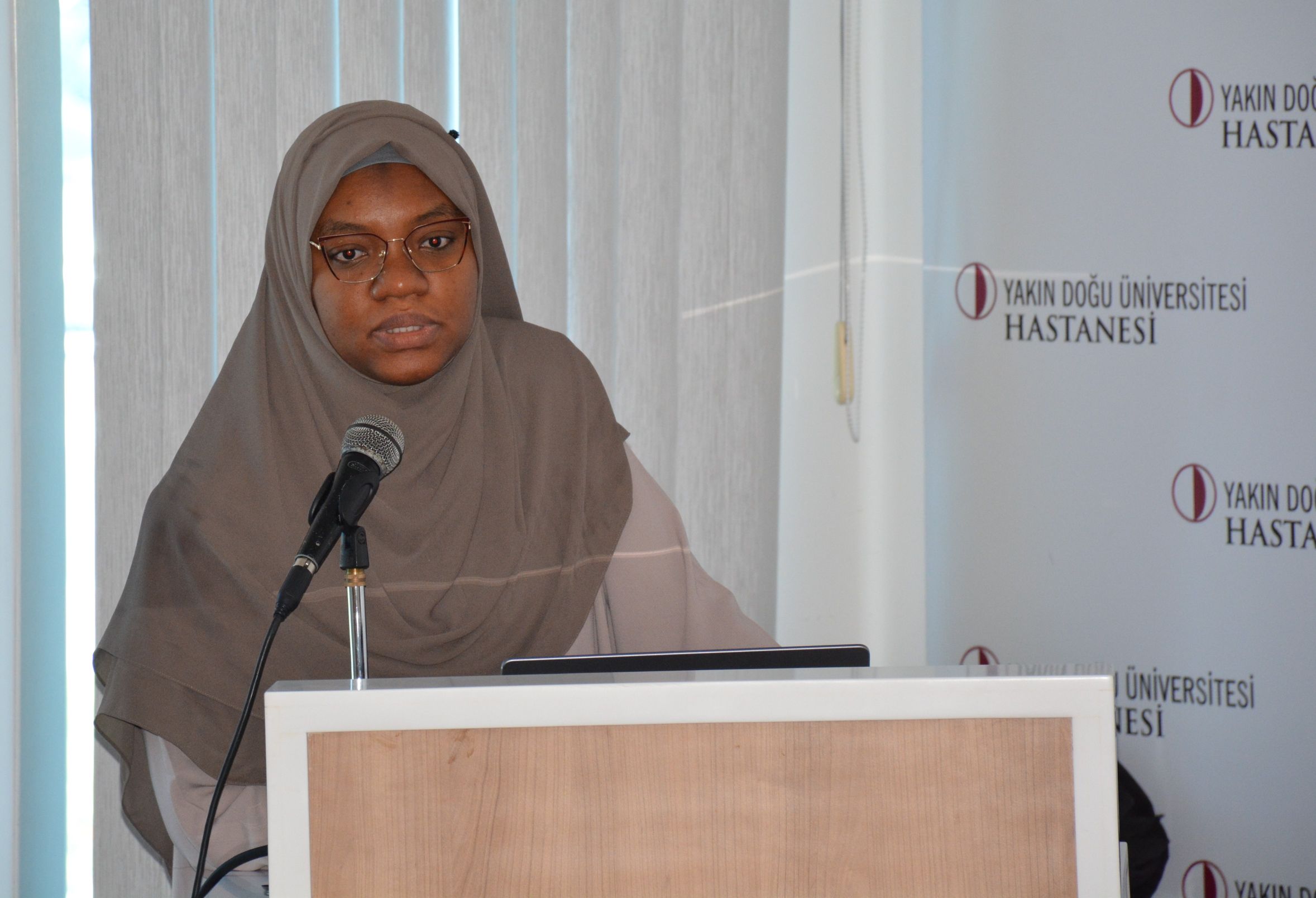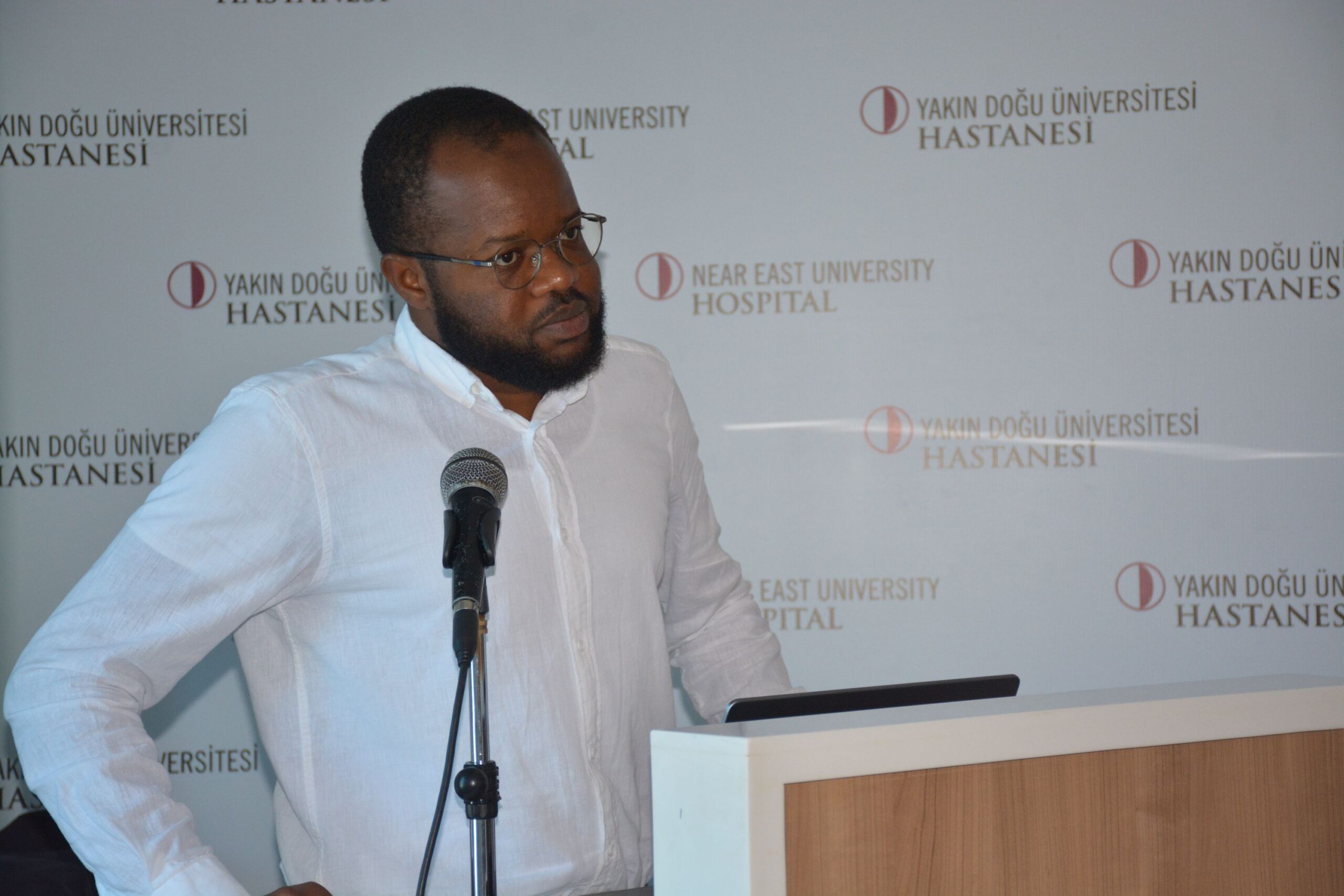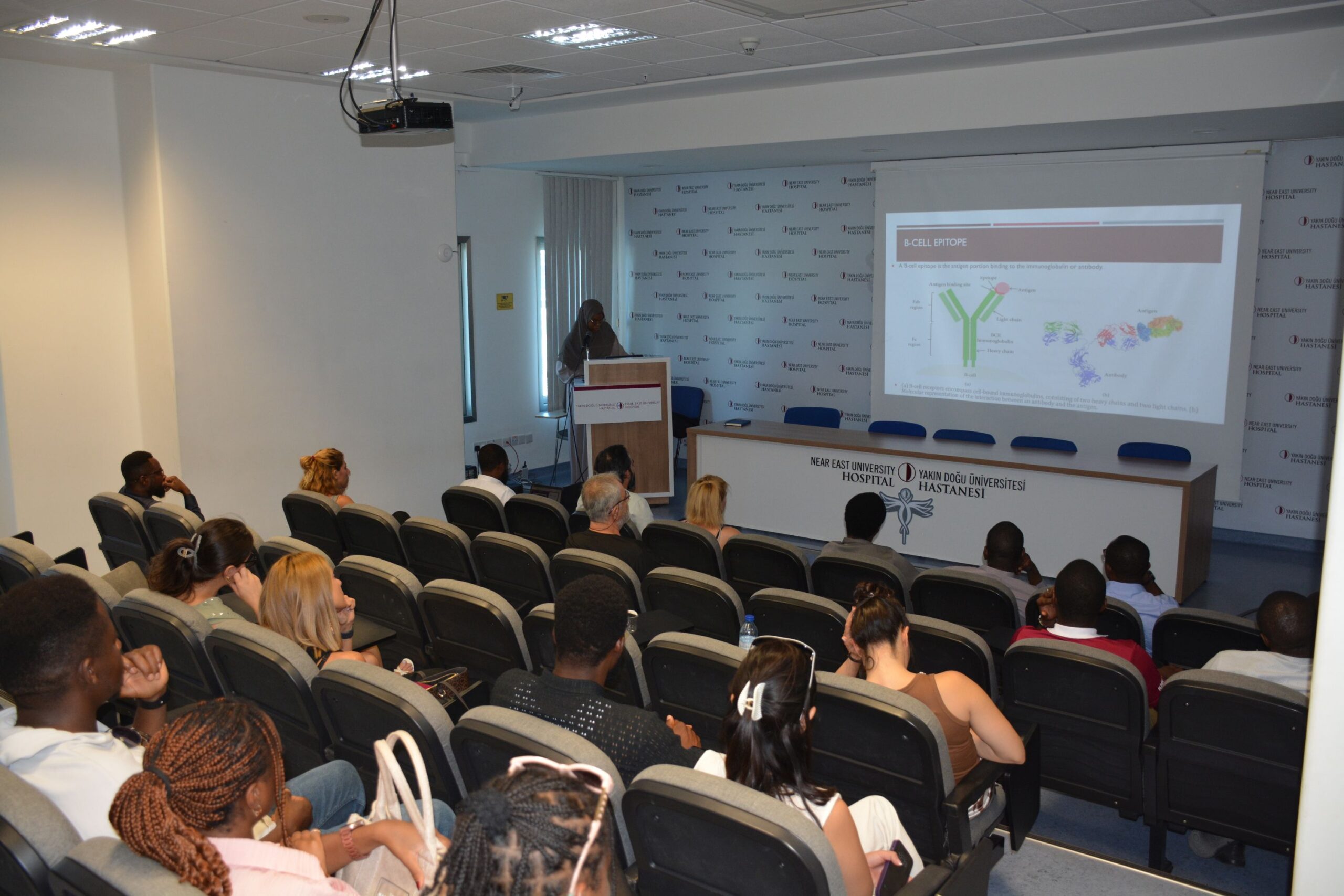
The seminar titled “A New Era in Vaccine Development: Utilizing Artificial Intelligence to Accelerate Vaccine Design” held by the Near East University Health Operations Research Center addressed the effects of using artificial intelligence in vaccine development processes.
The seminar examined how the analysis of clinical test results and interpretation of results can be done with the support of artificial intelligence, and emphasized that artificial intelligence can also be used effectively in the design and testing processes of vaccine molecules.
The seminar, which was spoken by Near East University Health Operations Research Center researchers Assoc. Prof. Dr. Zubaida Said Ameen and Assoc. Prof. Dr. Auwalu Saleh Mubarak, was moderated by Health Operations Research Center Faculty Member Assoc. Prof. Dr. Berna Uzun.


Vaccines can be developed much faster with artificial intelligence support
Assoc. Prof. Dr. Zubaida Said Ameen, a researcher at the Near East University Health Operations Research Center, said that developing vaccines with traditional methods is a long and costly process. Emphasizing that artificial intelligence shortens this process and enables a new era that provides much higher efficiency results, Assoc. Prof. Dr. Zubaida Said Ameen said, “Artificial intelligence algorithms will be effective in improving global health outcomes by accelerating vaccine design with prediction and optimization strategies.” Also drawing attention to challenges such as data quality, computational resources and integration with laboratory results, Assoc. Prof. Dr. Ameen said, “Advanced artificial intelligence models will bring personalized vaccines and more accurate results against epidemics and pandemics in a short time in the future.”

Utilizing artificial intelligence in vaccine production will revolutionize public health!
Assoc. Prof. Dr. Auwalu Saleh Mubarak, a researcher at the Near East University Health Operations Research Center, emphasized the need for effective vaccines in the fight against infectious diseases and said that vaccines can be developed faster and at lower costs thanks to artificial intelligence.
Assoc. Prof. Dr. Mubarak also touched on how artificial intelligence can be used through multi-epitope vaccines and bioinformatics analyses. “The process of determining suitable antigens for poorly understood pathogens involves unpredictable trial-and-error experiments. The vaccine development process includes stages such as preclinical testing in animal models and clinical studies in human populations, and these processes require a high level of labor and resources.” said Dr. Mubarak, adding that the integration of artificial intelligence into the vaccine development process will play an important role in overcoming these challenges and make great contributions to public health efforts.